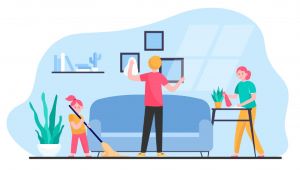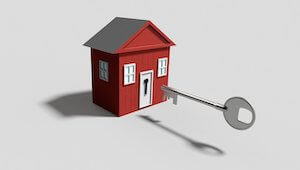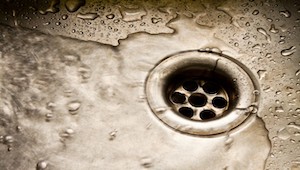“Owning a home is a keystone of wealth – both financial affluence and emotional security.” – financial advisor Suze Orman
Chances are good that your home is your number one long-term investment. But being a homeowner doesn’t come without risk, so it’s vital to have a solid homeowner insurance policy in place to help mitigate risk and protect your home’s assets. So what happens if your homeowner insurance is cancelled, not renewed or lapses? Let’s cover the basics of home insurance and the steps to take if you’re in these unfortunate circumstances.
What is a homeowners’ insurance policy?
Homeowners’ insurance, also called home insurance, provides financial protection if the homeowner’s house or its contents are damaged. It also protects in case the insured or their family are held liable for injuries to other people or damage to their possessions while they are on the property.
Is homeowners’ insurance mandatory?
While homeowners’ insurance is not required by federal or state laws, mortgage lenders will require you to purchase coverage before they agree to finance your house purchase as they have a financial interest in your home and need to make sure their investment is protected. Sometimes people who own their homes outright choose not to have homeowners’ insurance in place, but they’re taking a huge gamble on their future should some unexpected damaging event occur.
What’s the difference between non-renewal, cancellation, and lapse?
Depending on your circumstances, the non-renewal of a homeowners’ insurance policy is the most common scenario homeowners face.
Non-renewal happens when your insurer decides not to renew your policy
Cancellation can occur within two months of purchasing your policy for whatever reason the insurer chooses
A lapse happens when you neglect to pay your insurance premiums
Why would an insurance company cancel or not renew your homeowners’ insurance policy?
Cancellation: If you’ve had your homeowners’ insurance in place for more than 60 days, there are only a few reasons it may be cancelled:
- a significant change in risk
- fraudulent behavior
- non-payment of your premiums
Non-renewal: When your homeowners’ insurance policy is about to expire, an insurer may refuse to renew your policy for several reasons, such as:
- a sub-par credit score
- dangerous animals/dog breeds
- filling costly or excessive claims, as tracked for seven years through the Comprehensive Loss Underwriting Exchange (CLUE) database
- note: experts suggest paying out of pocket for small damages rather than claiming through insurance to avoid this situation
- having a criminal record
- having a vacant home
- liabilities, such as a pool, trampoline, tree house, or playground equipment
- lying about your insurance application
- making frequent late payments
- negative house inspection results with incomplete home repairs
- not residing in your home
- the insurance company stops supplying coverage in your area, such as with a disaster-prone state as it’s too high-risk, or as per the Florida insurance market crisis where many companies have been liquidating in recent years
What happens when my home insurance is cancelled or non-renewed?
In the case of cancellation, your insurance company will give you approximately 10 to 20 days’ notice before they terminate your policy. It’s important to note that insurance companies may only cancel your policy if you’ve had coverage for less than 60 days.
If an insurer decides not to renew your policy, they must give you approximately 45 days (depending on your state and the insurance company involved) through a written warning, allowing you time to research other homeowner insurance companies, including their rates and coverage offered. Their letter will identify the reasons why they’ve decided not to renew and the expiration date of your current policy.
Steps to take if your homeowners’ insurance has lapsed:
Here’s what you should do in the case of a homeowners’ insurance policy lapse:
- Immediately try to pay your missed premium.
- Call your insurer to restore your policy.
- If it’s not restorable, ask if your mortgage company can purchase homeowners’ insurance coverage on your behalf through a lender-based insurance policy.
- Search for a new insurance company if your previous insurer refuses to continue your coverage; be sure to get at least three quotes, while asking friends and neighbors for recommendations.
It’s important to know that during an insurance policy’s lapsed state, you won’t have any coverage for your home. A lapse may also trigger higher overall insurance premiums or difficulty in finding a new insurance company to provide coverage
Steps to take if your home insurance is not renewed or cancelled
- Contact your homeowner insurer to ask the following questions:
- What specifically went wrong with my policy
- Can you give me any advice as to how I can improve my home for coverage purposes?
- What issues posed the biggest concerns?
- Are you able to give me a second chance for coverage?
- Do you have a consumer affairs division I can talk to?
- Can you offer any recommendations for another insurance company that may be able to provide coverage for me?
- Get in touch with your state’s insurance department and enquire about:
- highly-rated insurance companies in your area that may be able to provide coverage
- ask for advice as to what you can do to improve your situation, as per the answers you received from your previous homeowners’ insurance provider
- filing a complaint against your previous insurer if you feel you’ve been treated unfairly
- Contact CLUE to request your free annual claim history report to ensure all information within the report is accurate and to dispute anything that’s not correct.
- If you’re unable to get a new homeowners’ policy, try contacting the Fair Access to Insurance Requirements (FAIR) plan in your state as they may be able to assist you if you’re considered to be in the high-risk category. Note that premiums offered through the FAIR program are higher and come with limited coverage.
- This is a good time to complete any partially finished home repairs as noted in a failed home inspection report as it’ll help you find a new insurer; this could include things such as:
- debris on your property
- a home exterior that’s in bad shape
- removing safety hazards like overgrown trees
- Also, be prepared to supply evidence of project completion to your new potential insurance supplier, including photographs and receipts; it’s an easy process if you upload them to the safe and secure DomiDocs Homeowner Enablement Platform®.
- Note that some industry professionals suggest that receiving a non-renewal notice is a blessing in disguise that may open up opportunities to find a new insurance provider with better coverage and/or similar premiums as your previous insurance company.
Whether we’re providing educational resources on homeowner insurance non-renewal, cancellation, or lapses, or how to weather natural disasters, DomiDocs® is committed to simplifying home management by offering functional tools designed to help save you both time and money, including streamlined document organization, real-time market value tracking, and more!
In addition, DomiDocs® HomeLock™ is our next-level fraud protection system that scans 200+ data points offering 360-degree coverage by monitoring your property 24/7/365. HomeLock™ will alert you about misfilings, unpaid bills, and even missed payments, so you’ll have peace of mind to simply relax and enjoy homeownership! Visit HomeLock™ today to watch our introduction video and check out our FAQs. As a bonus when you sign up, you’ll receive a comprehensive 7-year home history report and scan free of charge.
For more information related to homeowner risk, read:



